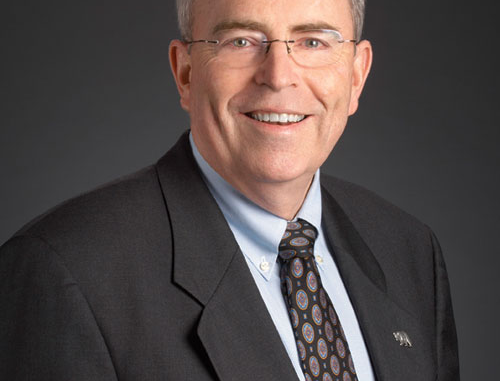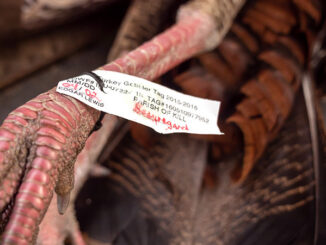
Barham addresses preliminary audit findings leaked earlier this summer
Robert Barham is no longer biting his tongue.
The former secretary of the Louisiana Department of Wildlife and Fisheries said he’s now willing to talk publicly about a pending report from the state legislative auditor’s office concerning alleged misappropriation of BP funds at the LDWF in the wake of the 2010 oil spill disaster.
“We have been, for lack of a better word, constrained by the normal rules of the legislative auditor and the work they did, but we were abiding by his rules — and some others were not,” said Barham, who served as secretary at the LDWF from 2008 until early this year. “And eventually we got tired of that, so I informed the legislative auditor that I was not going to adhere to it anymore and that I was willing to tell the press the other side of the story.”
Earlier this summer, preliminary audit findings were leaked to the media, with allegations of potential arrests in connection with how the department spent money intended for a seafood testing grant in the wake of the Deepwater Horizon spill.
Barham, who was replaced by Charlie Melancon as the LDWF secretary when Gov. John Bel Edwards was elected last fall, hinted that politics were likely at the heart of the investigation.
“I don’t think they (the legislative auditor’s office) were spurred on independently. I think some people, for whatever reason, wanted this,” said Barham, who now works as an assistant secretary in the Office of State Parks. “You make your own decision there, but three years after a program ends and six years after the oil spill? And now it’s suddenly at the front?
“The timing is interesting.”
Barham said he has met twice with investigators from the state auditor’s office for a total of about four hours, with much of the discussion concerning the original memorandum of understanding between the LDWF and BP that outlined a testing program to make sure seafood was safe to eat in the wake of the spill.
Audit investigators failed to understand that original MOU was just a starting point, he said.
“They took this first MOU that they got as the end-all, be-all agreement that would never be changed, which was ridiculous,” Barham explained. “The first MOU said BP was going to pay us $18 million for seafood safety testing. And they list a goal there of 2,000 tissue samples, but tissue sampling is not the only part of what’s done in a seafood safety test.
“When you’re out in the Gulf, there’s much more to it than just catching a fish and cutting a chunk out of it to ensure seafood safety. You’ve got to be out there observing if you see any visible oil or sheen, you’ve got to see if you’re catching the right numbers of fish and are you catching the species you’d expect in a certain area? There are component parts to it above and beyond just tissue sampling.”
Barham said department biologists collected only about 1,000 samples, but pointed out BP never ended up paying the full amount proposed in the original MOU.
“We only got $10 million because we proved the seafood was safe before we got to the full $18 million …,” he said. “We saved $8 million because we proved the seafood was safe.”
And most of the testing was completed only in the eastern part of the state — because that’s where the vast majority of the oil ended up, he said.
But, again, audit investigators pointed out the original MOU proposed equal testing across the coast.
“When that MOU was first written, we didn’t know where the oil was going,” Barham said. “That was prior to the oil evidencing itself as to where it was really going. It became clear that the oil was showing up primarily in the east, a little bit in the central and almost nothing in the west.
“So it would be logical that in the eastern zone — which is where 75 or 80 percent of the marketable seafood that goes into commerce comes from in Louisiana — would be where we would do our primary sampling.”
Barham said that, while audit investigators were concerned about the department apparently not following the guidelines outlined in the original MOU, BP wasn’t.
“Do you think BP — who was paying out millions of dollars — would not have raised this issue if they hadn’t been satisfied?” he said. “Not only have they never raised a word, we were in constant communication with them.”
Barham did agree that some BP money was used on items the department wouldn’t have otherwise purchased, but he said all of the monetary issues raised in the audit come from BP money— not Louisiana taxpayer funds.
“BP was throwing money, and that’s the truth,” Barham said. “Early on, BP was pouring money into the Gulf states. And, yes, we bought some big boats that we probably otherwise would not have bought, but let me tell you: This is not taxpayer money of Louisiana; this is BP money. This is all BP money we’re talking about — 100 percent. No taxpayer money of Louisiana.
“And if we had not taken that money, it would have gone to some other state. Yes, we bought some boats and stuff that we probably otherwise would not have bought, but those boats are still here. We didn’t grind them up and sink them for reefs when the program ended.”
As for any potential arrests resulting from the audit, Barham sounded doubtful and said he personally saw no evidence of any misappropriation of BP funds during his tenure at the department.
“They’ve had months. I’ve heard this now for months,” he said. “You tell me: Do you not think there would already be handcuffs on somebody if there were wrongdoing?”
Allegations from the leaked audit also centered on potential misuse of credit cards and some other non BP-related items, which Barham confirmed.
“There are things in there not uncommon to any department, like timekeeping and records, and that sort of thing — and I don’t have a problem with any of that,” he said. “There are other things in the audit, but the No. 1 focus of this was questioning the BP expenditure. I don’t have a problem with proper accounting and keeping up with purchases, but that’s not the issue.
“The thrust of the issue I take exception to is the premise that we didn’t perform what we should have and didn’t spend the BP money wisely — which is not true.”
He said allegations of monetary mismanagement during his time at the LDWF are ironic, considering the financial position of the department when he took over as secretary in 2008.
“Money obviously to me was, from the get-go, the most-important obligation I had as secretary of that department,” Barmah said. “When I went to Wildlife and Fisheries in 2008 — and you can verify this with the (agency) — we were less than a year from going into the red. That’s not acceptable. We get no state funds. So with programatic changes, personnel work and structural changes in the department, when we left under current expenditure levels, you could project out four years in the black.
“So for the whole term of this governor it’s going to be in the black, if they just don’t overspend — because of what we did.”
Barham said that success came even as LDWF made great strides forward.
“ … (T)hat’s in combination with the fact that we delisted the black bear, brought the whooping crane back to Louisiana, added hundreds of thousands of acres to the reserves of recreational land for the sportspeople of Louisiana — and we faced the largest man-made ecological disaster that America has ever faced during my term in office,” he said. “We had a great department, and we did great work and I’m very proud of that.
“But we started with focusing on the money, so to say we were not concerned about the money is absolutely laughable.”
Apart from the audit investigation, Barham said he’s perplexed by the department’s current position on red snapper management.
Melancon has indicated funding concerns prevent him from backing state management of the species, while Barham was fully supportive of the idea and testified to a U.S. House committee that the state could foot the bill for state management.
“It’s really unexplainable to me. How in the world can the governor have publicly stated on multiple times his position — which is what we were espousing, state management? We can do it better than the Feds,” Barham said. “We proved that in federal court, even — we can do it better. How can the governor be saying that’s his position, when his administrator of the department charged with that has taken the exact opposite position?
“It’s unexplainable. I shake my head. I just don’t understand it.”


